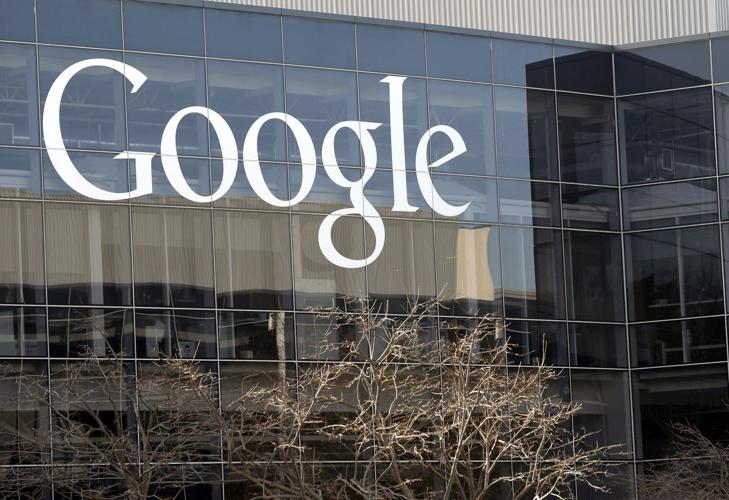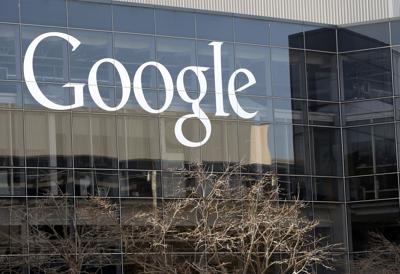A decade ago, when Microsoft Corp. was reined in by the U.S. Justice Department, a prominent Silicon Valley attorney popularized a theory about antitrust cases: “The trial is the remedy.”
The theory meant that forcing a monopolist to defend its conduct could open up space for other companies, particularly newcomers, to innovate in a market. And today, it’s happening with Alphabet Inc.’s Google.
Just as Microsoft is believed to have missed the technology world’s move to mobile platforms because it was so focused on its own monopoly case with the Justice Department, testimony and internal documents suggest Google may have fallen behind in adopting AI because of its own antitrust trial, which concluded in Washington Friday.
In Google’s case, that has been underscored by testimony and other evidence presented during the second phase of the Justice Department’s trial on how artificial intelligence is impacting its core online search business and opening up new deals for startups.
Last Wednesday, Apple Inc.’s top dealmaker Eddy Cue roiled Alphabet shares with his testimony. Cue discussed why Apple had chosen OpenAI’s ChatGPT over Google’s Gemini product for the iPhones’ new AI search feature. He also said Apple is “actively looking at” revamping its Safari web browser to focus on AI-powered search engines.
His comments indicate that while Google has worked to protect its dominance in its core search business, AI companies have succeeded in building a viable alternative for answering questions on the internet.
Columbia University law professor Tim Wu calls it “the policeman at the elbow” effect: when a monopolist knows someone is watching its every move, it’s much more careful to avoid being seen as stifling rivals. The whole point of monopolization trials “is to shake things up,” said Wu, who served as President Joe Biden’s competition adviser from 2021 to 2023.
The second phase of the Google trial focused on how to address what a federal judge last year found to be an illegal monopoly. After closing arguments May 29 and 30, Judge Amit Mehta will determine whether to break up the company by divesting the Chrome browser or restore competition to the market in some other way.
Justice Department antitrust chief Gail Slater said at a conference in Scotland Friday that the search market has been “frozen” for 20 years in terms of competition. “How do we unfreeze that ice block?” she said. “Key to all of that of course is scale and data. And that’s going to be something that will be very important for competition going forward.”
Lee-Anne Mulholland, Google’s vice president of regulatory affairs, said in a blog post after the trial wrapped that the Justice Department’s proposals were “extreme” and would harm competition in the industry.
“Over weeks of testimony, we heard from a series of well-funded companies eager to gain access to Google’s technology so they don’t have to innovate themselves,” she said. “What we didn’t hear was how DOJ’s extreme proposals would benefit consumers.”
Cue’s bombshell
Apple had partnered with Google on online search since 2003, earning as much as $20 billion (all figures U.S.) a year for making Google’s search engine the default option on its devices. Cue was intimately involved in negotiating that deal — in fact he had testified about it in 2023 as part of the Justice Department’s first phase of its antitrust case. Mehta ruled last year that Google illegally monopolized the search market through exclusive deals, citing the Apple relationship among others.
For its AI deal, though, the iPhone maker picked ChatGPT. And even though that partnership isn’t exclusive, Apple still has yet to sign a deal to add Gemini to its phones. Cue barely mentioned Gemini this week when he appeared in court for the Justice Department’s second phase trial about how to remedy Google’s illegal conduct.
The contrast between Cue in October 2023 and in May 2025 was striking. Two years ago, Cue’s testimony was grudging and somewhat stilted as he was contractually bound to defend Apple and Google’s deal.
On Wednesday, Cue was unleashed, practically ecstatic about the amazing power of AI, which he called the fourth technological revolution of the past 35 years. As Cue spoke, he repeatedly highlighted AI startups Perplexity and Anthropic’s Claude.

Eddy Cue.
Theo Wargo Getty ImagesCue appeared to be alluding to what Silicon Valley has described as an existential threat to search over the past two years. While AI chatbots don’t — and can’t — operate exactly like search engines, many see them as a challenge to the traditional way people have used the internet to find information.
Instead of receiving a list of links directing them to sources across the open web, users can now get instant AI-generated answers directly from bots, which are drawing their responses from large repositories of existing human-generated data.
In response to Cue’s testimony, Google said it has seen an overall increase in queries from Apple devices as users switch from just text-based searches to using voice-activated and image-based search.
Other witnesses have credited the Google trial with opening up business opportunities for other companies.
That the search market is suddenly exciting again is also not an accident but a byproduct of the Google antitrust trial itself. Perplexity’s Dmitry Shevelenko was explicit that the company’s recent success in partnering with Lenovo Group Ltd.’s Motorola wouldn’t have materialized if not for the Justice Department’s antitrust suit against Google.
It’s only because Google is “under pressure” that phonemakers “carriers and browsers are OK having some of the dialogues they are having,” Shevelenko, Perplexity’s chief business officer, said in his own trial testimony last month.
Probe starts
Google actually discovered the key technology for the large language models that underlies today’s AI startups before the Justice Department opened its probe of the company in 2019. The government has argued that Google didn’t capitalize on that innovation because of its dominance in the market. Google didn’t really begin integrating it into its search engine until after OpenAI’s ChatGPT took the world by storm in November 2022.
Google maintains that it spends billions on innovation each year and waited to introduce AI features so that it could do so responsibly.
“For a monopolist, innovation is difficult because it’s terrified it might cannibalize its revenue,” Wu said. He noted how Bell Laboratories, AT&T’s innovation arm, invented dozens of useful technologies, including the answering machine and the technology behind cellphones. But A&T refused to bring them to market, concerned that people might then use landline phones less.
That same “paranoia about ending the model” – as Wu called it – is evident in Google’s internal documents about AI. In notes from an October 2024 meeting, top Google executives pressed the Gemini team about its impact on Google’s search and advertising businesses and when they could start incorporating ads into the AI apps.
Vidhya Srinavasan, Google’s vice president of ads & sommerce, told the group that “we aren’t losing Search/Ads traffic yet, but she feels like this is inevitable, and we should prepare for Gemini’s success. She wants to accelerate monetizing Gemini with Ads ASAP ... ‘writing is on the wall.’ ”
Google said the company hasn’t seen AI cannibalize search, with only a small slice of homework and coding queries shifting.
—With assistance from Samuel Stolton, Davey Alba and Julia Love.
Bloomberg






























To join the conversation set a first and last name in your user profile.
Sign in or register for free to join the Conversation